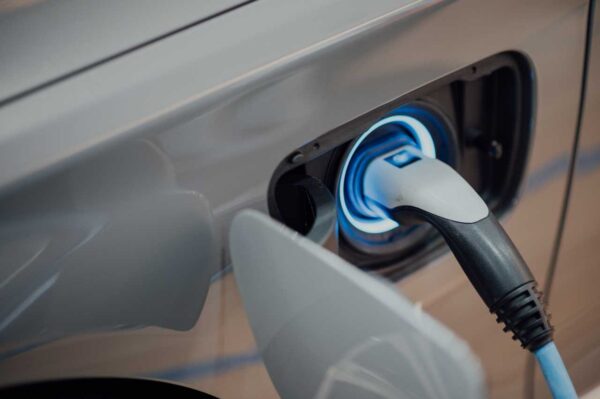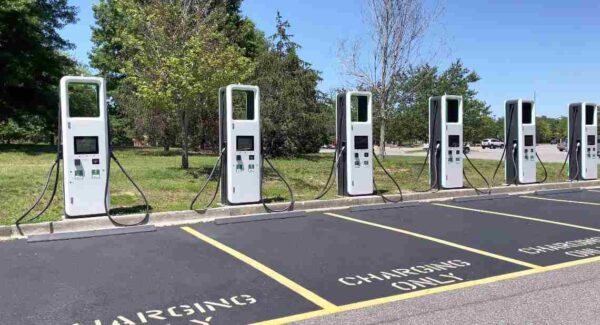The Decline Of Public Electric Vehicle Chargers In Six English Counties Is Making Hard For Drivers To Take Long Distance Journeys
Drivers in Lincolnshire and around the UK are being advised to think twice about buying an electric car. With the decline of electric charging points, drivers are finding it hard to charge their vehicle if they don’t have a charging point at home.
Those people thinking of buying an electric vehicle are being advised to think twice with the decline of electric charging points around the UK.
The electric vehicle revolution has been touted as the future of transportation, offering a clean and sustainable alternative to traditional fossil fuel-powered cars.
However, recent reports indicate a troubling trend: a significant decline in the number of public chargers in six counties in England.

This decline raises concerns about the accessibility and convenience of charging infrastructure for electric vehicle owners.
Even though there are apps that state where electric charging points available, when drivers go to charge their vehicle, they find a lot of them are faulty or not working.
A recent analysis conducted reveals a staggering decline in the number of public chargers across six counties in England. The study compared the current number of chargers to previous data, highlighting a significant decrease in availability.
The counties affected by this decline include Gloucestershire, Devon, Kent, Norfolk, West Yorkshire and Tyne and Wear than at the beginning of the summer.
The decline in public chargers is a cause for concern, as it directly impacts the ability of electric vehicle owners to find accessible and convenient charging stations.
Figures published by the Department for Transport yesterday also show a fall in Northern Ireland.
In Lincoln alone, there are 57 charging points across the city, 18 of those managed by City of Lincoln Council and found in the council car parks. Electric vehicle owners have said that is not enough.
Drivers in Skegness, Grimsby, Boston, and Scunthorpe are also complaining more needs to be done.
Several factors contribute to the decline in public chargers in these six English counties. Firstly, the lack of government incentives and support for charging infrastructure development has hindered the expansion of public charging networks.
Without adequate financial assistance and clear policies to incentivize the installation of chargers, businesses and local authorities may be reluctant to invest in charging infrastructure.

Secondly, the limited profitability of public charging stations poses a challenge for businesses. Unlike traditional fuel stations that generate revenue from fuel sales, public charging stations rely on charging fees, which may not be sufficient to cover installation and maintenance costs.
This financial barrier discourages businesses from investing in chargers and leads to a decline in their availability.
Additionally, the complexity of charger installation and planning permission processes may act as a deterrent for businesses and local authorities.
Obtaining the necessary approvals and navigating the bureaucratic procedures can be time-consuming and costly. This administrative burden further contributes to the decline in public chargers.
The decline in public chargers has significant implications for electric vehicle owners, particularly in the affected counties.
Firstly, the accessibility of charging infrastructure becomes a major concern. With fewer public chargers available, electric vehicle owners may face challenges in finding charging stations, leading to increased inconvenience and potential range anxiety.
Moreover, the decline in public chargers may discourage potential electric vehicle buyers. The availability and convenience of charging infrastructure play a crucial role in the decision-making process for individuals considering purchasing an electric vehicle.
The lack of accessible charging options may deter prospective buyers and slow down the adoption of electric vehicles.
Furthermore, the decline in public chargers could perpetuate inequalities in access to sustainable transportation. Those who do not have access to private charging facilities, such as home or workplace chargers, rely heavily on public chargers.
The decline in public charging infrastructure disproportionately affects these individuals, limiting their ability to transition to electric vehicles and benefit from the environmental and financial advantages they offer.
Addressing the decline in public chargers requires a multi-faceted approach involving government intervention, collaboration between stakeholders, and innovative solutions.
Firstly, the government should provide financial incentives and support for businesses and local authorities to invest in charging infrastructure. This could include grants, tax incentives, and streamlined processes for installation and planning permission.
Collaboration between stakeholders is essential to overcome the financial barriers associated with public charging stations. Partnerships between businesses, local authorities, and energy companies can help distribute the costs and responsibilities of charger installation and maintenance.
Additionally, adopting standardized charging protocols and interoperability standards can enhance the user experience and make charging more convenient for electric vehicle owners.
In terms of innovative solutions, advancements in fast-charging technologies can help mitigate the decline in public chargers.
High-power charging stations that enable rapid charging could alleviate concerns about charging time and reduce the reliance on a large number of public chargers. Research and development in battery technology and charging infrastructure are crucial for further advancements in this area.
The other serious problem that vehicle owners who have considered buying an electric vehicle is the cost compared to petrol versions.
Not just that, most electric vehicles don’t offer a realistic mileage for the driver, which means a lot of work needs to be done before the Government even think about stopping petrol vehicle production.


